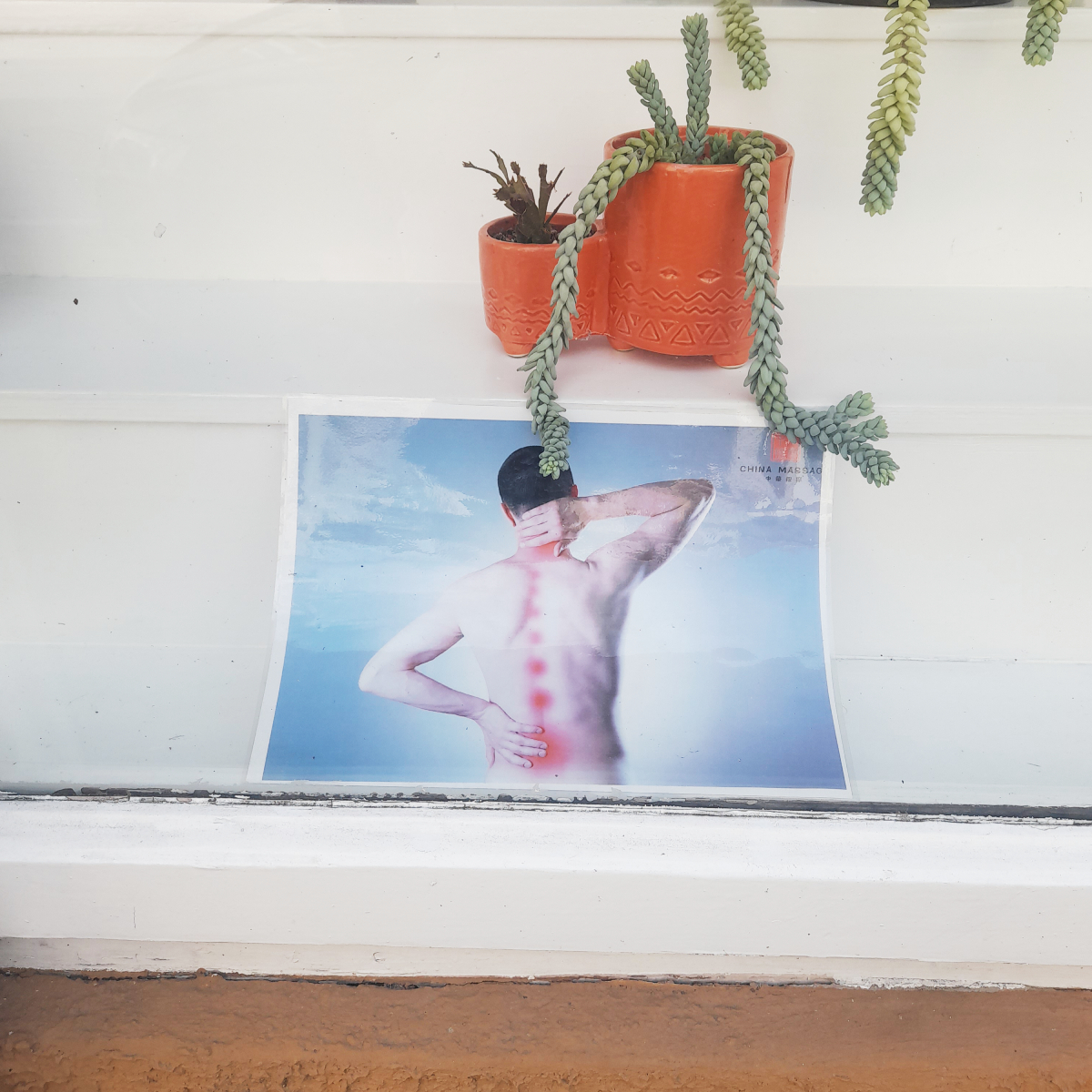articles
China Elevator Stories
The Torture That Is Called Massage
I chat with a blind massage therapist in Shenzhen.
22/01/2013

Ruth Silbermayr
Author

One evening in Shenzhen, after suffering from neck pain all day and being unable to turn my head to the left, I decide to get a massage. I find a blind massage place nearby and think I should give it a try. In China, the common job for a blind person seems to be as a masseur, but I have never actually come across a blind person in these places—until this evening.
After explaining where it hurts and a simple conversation, the masseur asks me: “Where are you from?”
I tell him: “I’m from Austria.”
“Aus-what?”
“Austria in Europe.”
He replies, surprised about this: “Oh, I see. I thought that your accent was a bit unfamiliar.”
After a while, I ask him: “Since coming back to Shenzhen three weeks ago, I often have itchy eyes in the evenings. What is this connected to?”
He tells me: “That’s too much internal heat!”
Stupid, I think. Not the masseur, but me. Everyone here drinks liangcha, “cooling tea”, all year round to counteract the effects of internal heat, a TCM term. Everyone talks about internal heat. For example, you shouldn’t eat too many lychees, pineapples, or mangoes, they say in summer, because this will increase internal heat. Or that you shouldn’t eat food that is both spicy and greasy—exactly for the same reason. I should have thought of it sooner. But while for many Chinese, it is obvious that something like itchy eyes is clearly a consequence of too much internal heat, a person not growing up with TCM concepts has a harder time figuring out what certain things are connected to. I make up my mind to drink bitter liangcha more often in the future.
A little while into the massage, the masseur asks me: “Does it hurt?”
“Yes, it hurts a lot.”
I think that now that I told him, he will use less pressure, but that’s not how it works. It only hurts when something is out of balance, and to try to bring it into balance again, it needs to hurt, is what they tell you. When he is done with the massage, the masseur asks me if he should also apply guasha, or “scraping”, which he says could help with my back pain. I have never tried guasha before and want to give it a try.
Ninety minutes later, the torture that is called massage and guasha is finally over, and I can go back home. When I arrive at my place, I look in the mirror. My back looks like somebody beat me up really badly, and that night, my neck and shoulders seem to hurt even more than before. But after a few more days, the pain and the rash are both gone, and I’m wondering if I should go get a massage again soon.
Have you ever tried massage treatments in China?
This is part of the series ‘Conversations with Locals in China,’ where I share conversations with Chinese people on my blog.